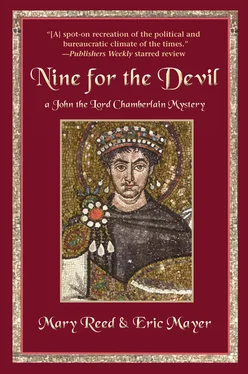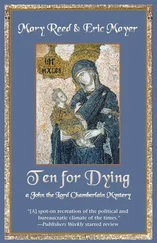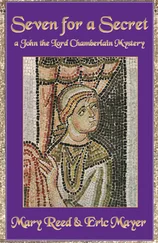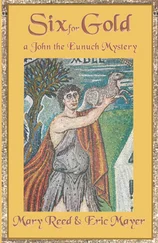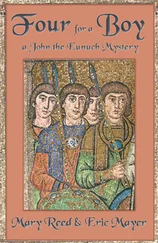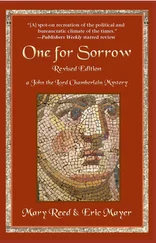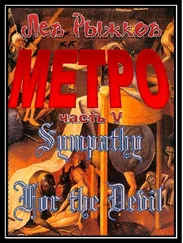Mary Reed - Nine for the Devil
Здесь есть возможность читать онлайн «Mary Reed - Nine for the Devil» весь текст электронной книги совершенно бесплатно (целиком полную версию без сокращений). В некоторых случаях можно слушать аудио, скачать через торрент в формате fb2 и присутствует краткое содержание. Год выпуска: 2012, Издательство: Poisoned Pen Press, Жанр: Исторический детектив, на английском языке. Описание произведения, (предисловие) а так же отзывы посетителей доступны на портале библиотеки ЛибКат.
- Название:Nine for the Devil
- Автор:
- Издательство:Poisoned Pen Press
- Жанр:
- Год:2012
- ISBN:нет данных
- Рейтинг книги:3 / 5. Голосов: 1
-
Избранное:Добавить в избранное
- Отзывы:
-
Ваша оценка:
- 60
- 1
- 2
- 3
- 4
- 5
Nine for the Devil: краткое содержание, описание и аннотация
Предлагаем к чтению аннотацию, описание, краткое содержание или предисловие (зависит от того, что написал сам автор книги «Nine for the Devil»). Если вы не нашли необходимую информацию о книге — напишите в комментариях, мы постараемся отыскать её.
Nine for the Devil — читать онлайн бесплатно полную книгу (весь текст) целиком
Ниже представлен текст книги, разбитый по страницам. Система сохранения места последней прочитанной страницы, позволяет с удобством читать онлайн бесплатно книгу «Nine for the Devil», без необходимости каждый раз заново искать на чём Вы остановились. Поставьте закладку, и сможете в любой момент перейти на страницу, на которой закончили чтение.
Интервал:
Закладка:
John noticed an attractive, fair-haired woman surrounded by attendants moving toward the bier. “I see Antonina is here.”
“She’ll be angry she didn’t get what she wanted,” Felix said. “Coming all the way from Italy in hopes that Theodora could convince Justinian to give Belisarius the reinforcements he needs to fight the Goths. She arrived too late.”
John saw that Felix’s gaze lingered on the woman. In the dim light, at a distance and dressed in robes glittering with jewels, she looked the same as she had over fifteen years ago. Back then, Felix was a lowly young excubitor and had confessed to John he had been lured to an unwise tryst with Antonina in this very hall. Did he recall that now? How could he not? Did he ever wonder if fate had smiled, whether it might be him instead of Belisarius leading Justinian’s troops in Italy?
John said, “Cornelia tells me that Antonina will be pleased since she can call off that marriage Theodora arranged between her daughter and Theodora’s grandson.”
“That’s a harsh judgment.” Felix spoke with surprising brusqueness. “Antonina was Theodora’s friend.”
There was a stir behind them as the choir took its place and the final detachment of excubitors stepped into line.
Felix glanced back. “A choir of former whores from her refuge singing hymns!”
“Some believe that the dead pay demons at the toll stations on the way to heaven with good works done here,” John observed in an undertone. “That refuge of hers will get her through at least one gate.”
“Perhaps,” Felix admitted in a begrudging tone. “But how will she get through the rest of the gates unless she knows the demons manning them personally?”
John took his leave. He had to be seen going through the motions of paying his respects to the woman who had hated him. Then the funeral procession to the Church of the Holy Apostles would not be long in leaving. Internment needed to be carried out quickly, particularly in summer heat. Although the rich and powerful could afford more perfumes and scented unguents than the poor, once their souls had departed their flesh decayed just as quickly.
Now the long line of mourners was approaching the church. Justinian, pale, stumbled along as if he were an automaton fast running down. The murmur of the crowd along the street mingled with the tramp of excubitors’ boots and the monotonous rise and fall of hymns. Clergy brandished censers whose fragrant incense evaporated ineffectively into the pervasive stench of the city. Servants of the imperial household, including several of Theodora’s female attendants, all weeping, followed the bier, as did more clergy carrying bright icons whose gold looked dull in the heavy light struggling from the dark heavens. Then came gaudily uniformed silentiaries and mounted scholarae in plumed helmets, minor officials, representatives from palace offices and the charitable endeavors in which Theodora had interested herself. It was a microcosm of both the dead woman’s life and imperial power and majesty.
Overhead glowering clouds sank lower and a greenish light began to spill down from breaks in the gray sky. Patriarch Menas waited at the church entrance. His long beard pulling his narrow face down into a sorrowful expression.
“Lord Chamberlain,” the patriarch murmured, nodding a greeting.
Was there a hint of irony in the look Menas gave to him?
Probably it was only John’s imagination. Menas, like John, had been no friend of Theodora’s. A dozen years earlier the new pope, Agapetus, had removed Theodora’s heretical ally Anthimus from the patriarchate and replaced him with the orthodox Menas.
Like John, Menas had survived despite Theodora’s enmity.
Even if Menas had not intended to convey to John the irony of them both paying their respects to an enemy, it was ironic that a woman who had ordered floggings and torture with less concern than she took over choosing jewelry would rest under the same roof sheltering relics of the apostles, martyrs, and saints, not to mention a portion of what was believed to be the column to which the Christian’s gentle god had been tied for a flogging before his slow, tortured death.
John would not have relished tracking down her murderer even if he believed she had truly been murdered. However, a follower of Mithra did his duty. For more than twenty years he had served Justinian. The emperor wanted him to find a murderer and John would do his best.
Was it possible that his duty to Justinian conflicted with his duty to Mithra? John did not think so. Yet there were those who claimed that both the emperor and empress were demons in human disguise. There was no doubt there was evil abroad in the world. A Mithran’s life was dedicated to battling evil. Had John been serving the wrong side?
Yes, said the scarred and twisted visage of the demon peering at him from the fringe of the crowd.
No. Not a demon. Not a sign, he realized. It was his friend and informant, the beggar Pulcheria, she of the half-ruined face. Even the poorest of the poor had come to pay their respects to a woman who had lived in splendor.
Or had the beggars come to gloat that though they lived on the streets, they yet lived?
Chapter Four
“Just because Pulcheria is not a demon does not necessarily mean that your seeing her was not a sign,” said Anatolius.
“Spoken like a lawyer,” John replied.
John had spotted his long-time friend as he left the Church of the Holy Apostles. Anatolius was only in his midthirties but his curly hair, once black, had turned prematurely gray. It distressed him, John knew, but made his visage resemble even more strongly the classical Greek sculptures, bleached of color by time.
Now they sat in Anatolius’ study. The cupids Anatolius’ late mother had commissioned still cavorted on the walls. He had also retained his deceased father’s desk with a skull depicted in its tile top. He did not meet his legal clients here, but in his office.
The room was uncomfortably hot despite the screens to the garden being open. As always in the heat, John drank more wine than usual. Who didn’t? He kept adding more water until it was barely palatable, but between the heat and the wine and lack of sleep the past few days he felt as if there were a fog behind his eyes. It was an effort to speak.
Anatolius had listened to John’s account of recent events in thoughtful silence.
“I would take you spotting Pulcheria-thinking her a demon-as a sign, John. I know you don’t think that way, so consider this. A lawyer naturally gets to know what’s on people’s minds. Courtiers and senators and senators’ wives tell me things they’d never confess to a priest. Lately everyone is frightened. They’re all certain Justinian has gone mad. Theodora was his life. He has had to watch her slip away, helpless to save her despite all his power. He is not necessarily the man you knew and I would not trust him. Particularly in regards to this impossible commission he’s given you.”
“What would be your advice?”
“If you were my client? I would advise you to do what you’ve talked about for years, pack up and take Cornelia to that bucolic estate in Greece, and do it today. You won’t, of course.”
John smiled faintly. His friend knew him well. There were very few to whom he had admitted his desire to leave the city and the imperial court some day.
“If you won’t think about yourself, think about Cornelia and Europa, and that grandchild who might be squalling even as we speak,” Anatolius continued. “You may choose to live like a spartan or some holy man, but nevertheless you are a wealthy man. One day your family will inherit your lands and they may have more use for them than you do. If you fail Justinian, though, he is liable to confiscate everything.”
Читать дальшеИнтервал:
Закладка:
Похожие книги на «Nine for the Devil»
Представляем Вашему вниманию похожие книги на «Nine for the Devil» списком для выбора. Мы отобрали схожую по названию и смыслу литературу в надежде предоставить читателям больше вариантов отыскать новые, интересные, ещё непрочитанные произведения.
Обсуждение, отзывы о книге «Nine for the Devil» и просто собственные мнения читателей. Оставьте ваши комментарии, напишите, что Вы думаете о произведении, его смысле или главных героях. Укажите что конкретно понравилось, а что нет, и почему Вы так считаете.
